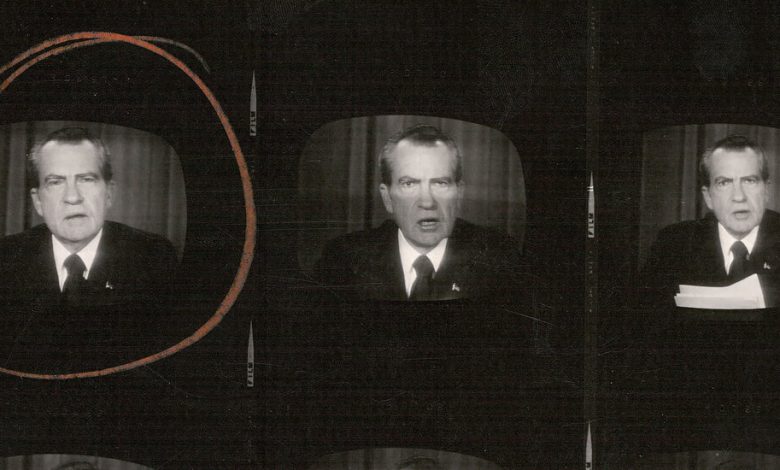Nixon, Trump and What Justice for All Means in America

Of the four criminal cases that Donald Trump is facing, the one now unfolding in Manhattan is generally considered the weakest. Its legal foundation is complex. Its key witness is a felon. Its details are the sort of stuff that the tabloids splash across their front pages.
Worst of all, it doesn’t speak to Mr. Trump’s actions as president, as the other cases do. But as the Supreme Court oral arguments on immunity last week made clear, it is likely to be the only one the country will see resolved before Election Day.
As a historian who has written about the wrenching events of the 1960s and early 1970s, I can’t help seeing Mr. Trump’s legal troubles through the lens of an earlier Republican president. Richard Nixon spent more than two years, from the summer of 1972 to the summer of 1974, trying to prevent investigators from uncovering the tangle of crimes that made up the Watergate affair. But unlike Mr. Trump, Mr. Nixon never faced criminal charges himself. For that, justice suffered, and the nation suffered, too.
So here we are, watching unfold in Justice Juan Merchan’s utilitarian courtroom the narrow, tawdry version of the trials the nation ought to have had this year and the trial the nation should have had 50 years ago.
Mr. Nixon won the presidency in 1968 promising to be tough on crime. And he was. Between 1961 and 1968 the nation’s prison population fell by 15 percent. By the time Mr. Nixon left office in 1974 it was almost back to where it had been in 1962, the start of a spiral fueled by the furious politics of law and order that his administration had helped to unleash.
The punitive turn struck poorer people and communities of color with particular force, an outcome that a majority of Americans didn’t seem to mind. But when the Watergate investigation exposed Mr. Nixon’s own potential criminality, they thought that the law ought to apply to him, too. As the crisis reached its peak in the summer of 1974, that belief hardened: By almost two to one, Americans wanted the House of Representatives to impeach the president, the Senate to try him and prosecutors to secure his indictment, so that his case could move into open court.
